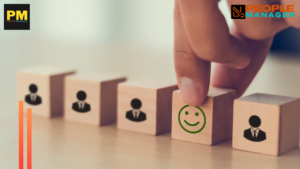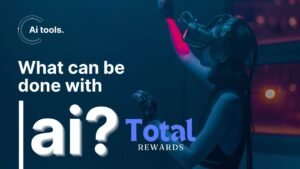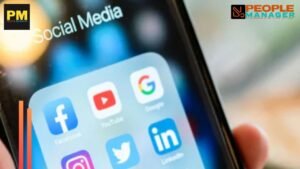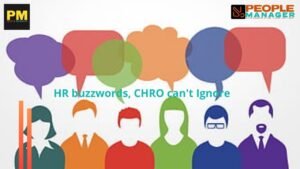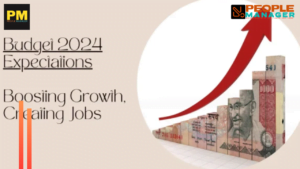The future of HR: Leveraging AI for HR Operation Management
Artificial intelligence (AI) systems can even anticipate which profiles fit the stated requirements by learning from past hiring decisions. AI is also included in video interview platforms, which lowers the likelihood of human error and gives every applicant an equal opportunity to pass.

HR digitization is one of the most important ways for HR services to become more efficient in the workplace, but its use may be restricted. It should come as no surprise that artificial intelligence (AI) is quickly changing the field of human resources (HR), given the intense attention and curiosity that have been directed toward the numerous ways AI has begun to impact and influence particular domains. Artificial intelligence has been revolutionizing important HR duties and is being applied to a variety of jobs, including hiring, performance management, and onboarding. Thus, how is AI being applied to the field of HR
The areas of HR function where AI can improve the efficiency of HR Department
1. Recruitment
As the conventional methods of bringing applicants into an organization. AI technologies and algorithms have undoubtedly become more prevalent in the hiring industry. After reviewing resumes, AI systems can shortlist candidates whose profiles fit particular job descriptions.
Artificial intelligence (AI) systems can even anticipate which profiles fit the stated requirements by learning from past hiring decisions. AI is also included in video interview platforms, which lowers the likelihood of human error and gives every applicant an equal opportunity to pass.
A few years ago, the multinational furniture and lifestyle brand Ikea employed “Robot Vera,” an AI-based hiring assistant developed by a 2017 Russian firm. Vera was able to perform 1,500 interviews in a single day and send candidates personalized follow-up emails, something a human could not accomplish. Businesses that care deeply about diversity, like Kraft Heinz, employ AI techniques to make sure that any unconscious prejudice is removed from job advertisements and that inclusive wording is used to help attract a wide pool of applicants.
2. Improved employee onboarding
It goes without saying that one of the most important phases in integrating a new hire into the team and ensuring their comfort and ease is employee onboarding. Here, too, AI solutions have made a significant difference by streamlining some of the tedious onboarding procedures and giving new hires individualized experiences.
AI-driven chatbots that answer frequently asked questions from prospective hires lighten the workload for the HR division. Training modules are recommended by AI-driven learning and development programs based on the competencies and growth areas of candidates.
3. Performance management
One of the most well-known music streaming subscription services, Spotify, features a performance management system driven by AI. The company’s internal talent marketplace, called Echo, uses AI-automated matching to enable employees to find relevant projects and new growth opportunities within the organization.
Echo even uses AI to match employees with mentors from around the world, identifying the employees’ requirements for learning and growth and providing them with an opportunity to learn from Spotify’s top talent (based on abilities). Along similar lines, a number of other businesses enhance their employees’ skill sets by utilizing AI’s benefits.
4. Analytics and Reporting
AI mostly assists HR departments in gaining a deeper understanding of their workforces. Planning for increased organizational performance and efficiency can be done with this knowledge.
Aside from all of this, AI makes workforce planning possible by predicting the manpower needs of a business in the future. With the use of technology, it is possible to forecast how a decision may affect the feelings of the workforce, which may have an effect on how long they stay with the company.
5. Employee engagement
AI chatbots interact with potential candidates and answer typical queries that candidates have regarding the company, job, and application process. Employers may uncover patterns in employee behavior and learn more about how engaged their workforce is with the company by using predictive analytics.
HR departments can utilize the analytics to anticipate staff turnover and take appropriate action to guarantee that those applicants are re-engaged. By spotting patterns and early warning indicators in employee behavior, AI even has the ability to enhance mental health at work so that HR departments may proactively provide help.
It’s evident that AI has a strong hold in the HR industry. In fact, according to Gartner, 76% of HR directors think their company won’t perform as well as other businesses do if they don’t integrate and apply AI technologies in the next year or two. It is imperative that your organization’s HR department adopt AI immediately, if it hasn’t already!
Read more HR news like this on PropleManager.co.in

Value our content… contribute towards our growth. Even a small contribution per month would be of great help to us. Since our establishment, we have been serving the industry through daily news and updates.
Our content is free for all, and we plan to keep it that way
Support the People Manager. Pay Here
- 59 trending HR buzzwords, CHRO can’t ignore - July 24, 2024
- India’s $5 Trillion Dream: Can Budget 2024 Deliver Growth and Jobs? - July 22, 2024
- People Manager Concludes Largest Inclusive Workplace Conference: Engage-2024 - July 18, 2024


